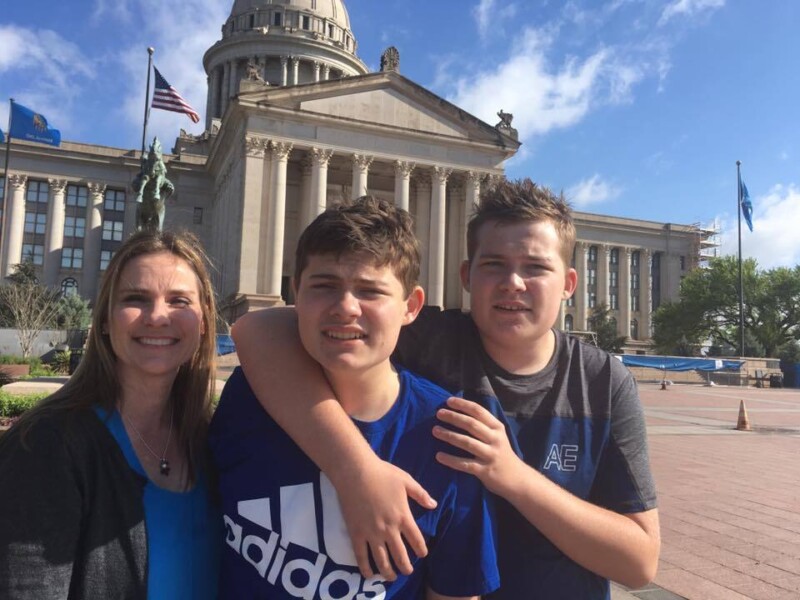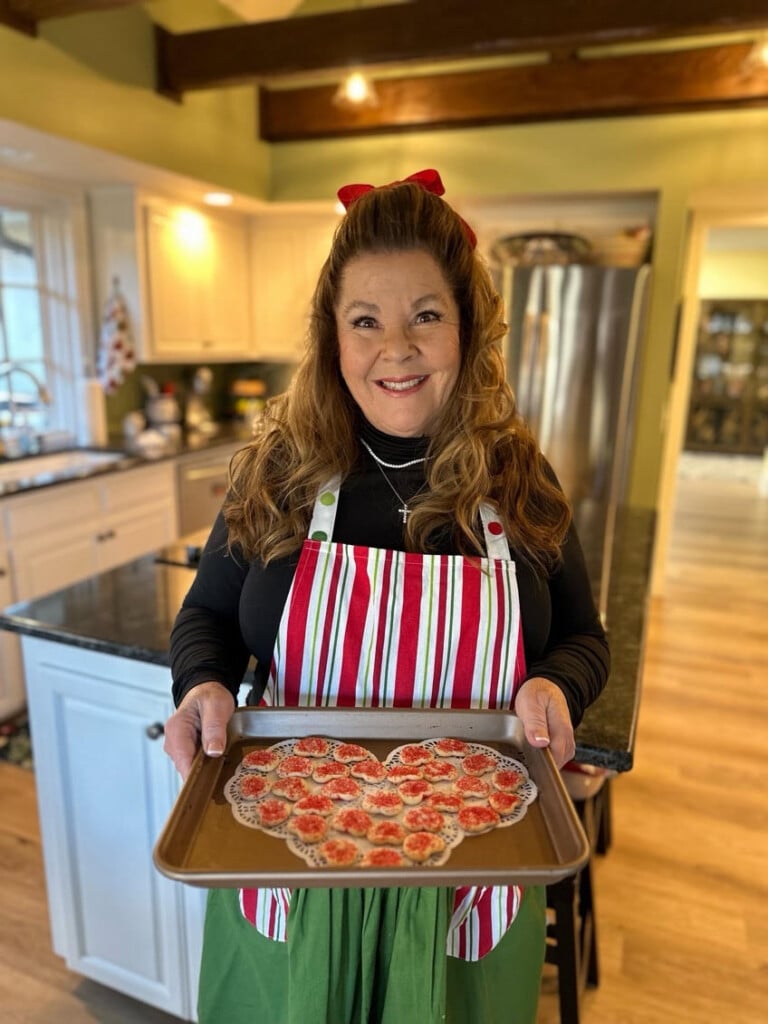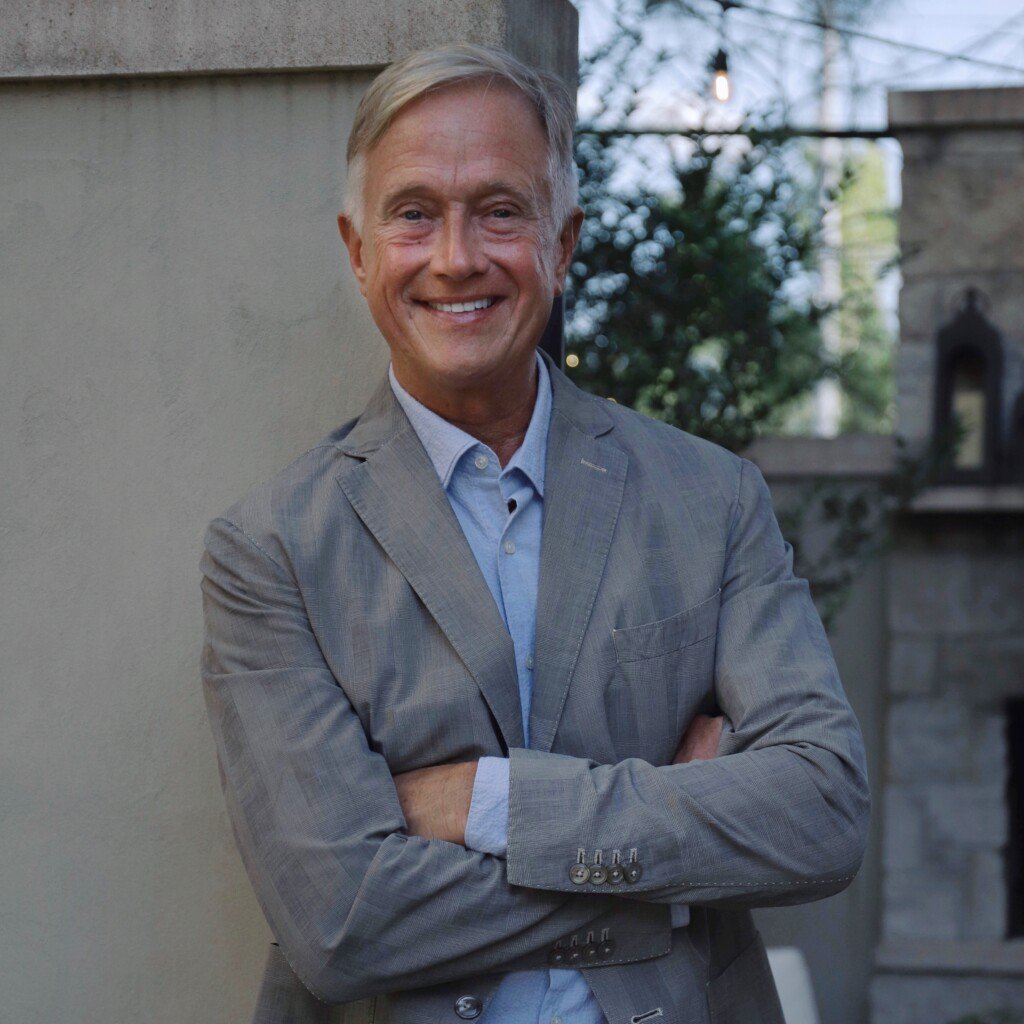Christi Newendorp – Autism Advocate

Christi Newendorp is dedicated to improving the lives of children with special needs. As a special education teacher, Christi works with students who have a variety of needs and understands the importance of providing outstanding care as well as getting access to resources, so kids and parents are supported. Personally, she and her husband have two sons with autism; one who is considered moderate and the other, severe.
Our visit shares more about her background as an educator and sheds light into her reality as a parent of two sons who have graduated from a traditional high school but don’t have a clear path toward their future. It is up to Christi and her husband to provide and coordinate care that includes around-the-clock supervision and support.
TK: How did you become interested in a career teaching special education?
Christi: My previous career was in non-profit and university fundraising and administration. My two sons were diagnosed with autism in 2003 and 2005, and I was finding it increasingly difficult to manage the demands of working, especially a lot of nights and weekends, with their needs. When we moved to Tulsa in 2007, my sons’ elementary special education teacher encouraged me to consider changing my career to elementary special education, and I loved it. I enrolled in coursework to change my career, and I haven’t looked back.
TK: How does having two boys diagnosed with autism inform the way you teach and interact with your students and parents?
Christi: I have the perspective of a special needs parent, which can be invaluable when you are trying to understand what parents across the conference table are thinking and feeling. I have also been an early childhood assistant, paraprofessional and am currently a teacher, so I understand what it’s like to perform multiple roles in education.
While I have a depth and breadth of knowledge in autism spectrum disorder, I have also developed skills in teaching students with other disabilities, including dyslexia and ADHD. I just passed the national certification exam to become a Registered Behavior Technician. It’s a magical feeling knowing that you are opening the door to academic, social and behavioral success for many students because you have the knowledge and the tools to make a difference for them.
TK: What would you like others to understand about people with autism?
Christi: Autism spectrum disorder (ASD) is a social, communication and behavior disorder. A main focus of ASD is the presence of repetitive, restrictive patterns of behavior. This can look like hand flapping, spinning or the individual appearing to talk to themselves, but those core behaviors will look different for each person.
In 2013, the APA published the Diagnostic and Statistical Manual 5, which changed all previous diagnostic categories in autism to one category, autism spectrum disorder, and added levels of severity, 1, 2 and 3, depending on the level of support the individual needed. This was controversial. Some members of the autism 1 category, formerly known as Asperger’s, were not happy with this change because they feel that Asperger’s was an identity, not a disorder. This group is the basis for the modern “neurodiversity” movement that promotes the idea that autism is not a disorder or a disabling condition, just a difference.
Autism 2 is a middle category. One of my sons falls here. Autism 3, for individuals “requiring very substantial support,” is now known as severe or profound autism. My other son falls here. He requires 24/7 support, will most likely never live independently, and has no housing, vocational or educational opportunities. I would consider his autism to be a disorder.
“Autism” by itself is no longer a useful diagnostic term because such diverse people have been put together under the same label. In my opinion, the APA needs to separate the groups again with DSM 6, as an urgent matter of research and public policy.
The other important thing for people to know is that the prevalence of autism has increased dramatically in the last 20 years. The CDC now says that about 1 in 36 children has autism, up from 1 in 44 in 2018 and 1 in 150 in 2002, when my sons were diagnosed. This is an incredible rise that is not due to better identification or the DSM revisions, as some have claimed. The increase is staggering, and it’s seen across all severity categories. Our systems are simply not prepared for these numbers….it’s a national crisis receiving very little attention.
TK: What progress do you see being made on treatment/therapy/research?
Christi: Unfortunately….not much. We know as much about the cause or causes of autism as we did 20 years ago, when my sons were diagnosed. Research has been hampered by the controversy and division mentioned above—if you have one group saying that there’s no need to research causes of autism because the condition is just a “difference,” then researchers and policymakers start to question the need for answers.
However, there are some groups nationally who are fighting to change that perception. The Profound Autism Alliance, the National Council for Severe Autism and the Autism Science Foundation are all working to promote national policy to continue research that will improve people’s lives.
TK: Where have you seen breakthroughs in support?
Christi: We have made great strides in providing autism insurance coverage, thanks largely to initiatives and leadership from Autism Speaks. Locally, Oklahomans for Autism Insurance Reform, led by my friend Tara Hood, was successful in passing insurance reform in 2016 that has enabled families to access Applied Behavior Analysis to treat autism at young ages. ABA is recommended by every major pediatric health organization in the world as the gold standard for increasing individuals’ ability to communicate, meet social and behavior expectations in education and to better prepare them for success as adults. We need to continue to increase access to ABA in private clinics and schools across the country and here in Oklahoma. We still have a tremendous problem with access to ABA in rural areas and its integration with special education in schools, due to a shortage of providers.
We also continue to have a tremendous problem with access to other beneficial therapies such as speech, occupational therapy and psychological services such as social skills groups in Oklahoma due to a shortage of providers.
TK: There’s been some controversy about whether or not autism is actually a disability—or that people with autism don’t need to be cured. Can you share your perspective on this?
Christi: As I shared above, I strongly believe that autism is a disability. I am happy to shed the name “autism” and go with a completely different name if members of the neurodiversity movement are proud of the autism identity and want to keep it.
A prominent article in the journal Lancet in 2021 defined “profound autism” as describing people who are unable to advocate for themselves and are likely to need 24/7 support throughout their lives. This means that our community of severely affected loved ones will probably stick with the name, but I feel strongly that we need to be considered separate for all public policy and health initiatives. We have completely different needs, and I think it’s confusing to the general public that Greta Thunberg, climate activist, and NBA star Tony Snell have autism, but so do individuals who injure themselves, aren’t toilet trained and can’t communicate.
TK: What role do schools play in supporting families with autistic children?
Christi: Public schools play a significant role in supporting children with autism in Oklahoma. Only a few of the most mildly affected have a private school option. Legislators and policymakers need to remember that IDEA guarantees a free and appropriate public education to students in public schools. Private schools can and do discriminate against those severely affected by their disabilities by suspending and/or declining the enrollment of children they feel they can’t serve. When this happens, these children end up back in public schools.
The only private school option I know of for parents whose children have severe/profound autism in the Tulsa area is Pathways to Independence in Bartlesville. There are several ABA clinics in the Tulsa area that operate similarly to private speech/occupational/physical therapy clinics, but they are not comprehensive private schools. We need to be doing everything we can to support public schools, primarily through increasing funding.
TK: What more could the city or state be doing to help improve the lives of individuals with autism and their families?
Christi: Tulsa has some great parent organizations and some schools and school districts who are doing good things to help individuals with autism and their families. However, we have a severe shortage of special education teachers, paraprofessionals and therapists, so I would love to see the Oklahoma State Department of Education (OSDE) and districts work together to meaningfully address this.
The city could consider some initiatives to make our parks and playgrounds more accessible and inclusive. Our police department could and should consider some updates to their existing training to make sure that officers know to consider signs of autism to help prevent and respond to incidents of wandering and elopement, and how to safely de-escalate and support families whose loved one might be having a crisis related to their autism, especially when that individual is an adult.
TK: What improvements has Oklahoma made that has made a difference in your lives?
Christi: The state of Oklahoma recently made a tremendous breakthrough when passing legislation to end the 13-year wait list for Medicaid waiver services through Developmental Disabilities Services for the severe autism population and others who meet DDS criteria. However, the additional money does not immediately equate to an increase in the capacity of the system to provide services. There’s a lot of work to be done to actually serve people. DDS needs to start with parent/consumer groups to advise them on policy—it’s hard to believe, but there’s currently nothing in place like this.
TK: What advice do you have for parents of children with autism?
Christi: First, I believe that your child is a child first, and a child with autism second. Love them, support them and never give up on them. No one loves your child as fiercely as you do. Next, I would say that there are so many resources out there to help, and more being developed each day. Reach out and form connections with other parents as soon as possible. Seek out information from national groups. Educate yourself continuously on what’s out there to help your child. Educate yourself in special education policy and relevant laws. Trust your special education and therapeutic professionals. If they’re not the right fit, keep looking. Once you receive a diagnosis, intervene with ABA as soon as possible. Autism affects each individual differently—never let anyone tell you what your child can or cannot do. Keep fighting for them.
TK: Tell us what you’re doing to advocate on a national level.
Christi: I am involved with the groups mentioned above. The PAA and the NCSA are relatively new. I plan to be a state chairperson or function in a similar role as they grow. The Council of Autism Service Providers, Autism Speaks and the Autism Law Summit are other groups that I have participated in to share resources and knowledge. I am interested in seeing more groups form in Oklahoma to advocate for continuous improvement in Medicaid services for the adult population, as none currently exist.
TK: What has been the most difficult part of being a parent of two severely autistic kids?
Christi: We had a tremendous struggle with our school district to provide special education services for my sons through age 21. The Individuals with Disabilities Education Act (IDEA) mandates that districts “consider” the need for these transition services through that age, but our district believed that if my sons had “earned” their credits, they should graduate as soon as possible, with no additional years of service to prepare them for life after graduation. We disagreed with our district and went through the special education dispute resolution process.
This resulted in one additional year of high school for my oldest, which matched up with the beginning of adult Medicaid waiver service for him in 2020. He graduated at age 19. Unfortunately, we had to hire an attorney and go through an expensive, stressful process for this result. My younger son graduated at age 18. The process was so awful for my oldest, we didn’t fight again.
As of February 2023, the OSDE-SE now recognizes that students like my sons should have received an alternate diploma and up to four years of additional high school education to appropriately prepare them for life after graduation. While I’m happy that other families will not have to go through what we endured going forward, I’m obviously saddened that my sons missed out on the opportunity to receive additional years of education by about two years.
There is nothing being offered to this population who were forced to graduate between 1977-2023 under the old system. You can’t go back to request additional years of education after the standard diploma. Unfortunately, my sons can’t use the diploma for much—they don’t qualify for vocational training, can’t participate in the new college experience programs, and there aren’t any adult educational programs designed for them.
TK: You mentioned that your boys are young adults, no longer in the school system. What challenges do you/they face?
Christi: Once you qualify for adult waiver services, you realize that Oklahoma has almost no housing options for individuals who need 24/7 care. We rely heavily on parents to provide it in our system. There are also no day programming or education options for this population. We have DDS-supported vocational programs, but none that accommodate those who need 1:1 support from an aide. The Department of Vocational Rehabilitation does not offer programming for this population.
That leaves what’s called Self-Directed Services, which can provide some funding for parents to recruit, hire, train, employ and retain an aide for your adult children to get them into the community, for recreation, practicing life skills or volunteering. It’s also our vital support so that my husband and I can continue working and save for retirement.
It’s inadequate to say that one person that parents hire to help them is a program, but that’s what’s available. There’s a huge need for reform and continuous improvement in our system. We have an ever-growing group of people in Oklahoma who fall into this category and need much more help.
TK: What resources would you like to share that might help others?
Christi: The organizations I mentioned above. I might also add nationally the Autism Society of America, National Autism Association. Locally, Autism Foundation of Oklahoma, Oklahoma Autism Network, Autism Tulsa and The Arc of Oklahoma (thearcok.org). Support our great non-profits in the area that employ some of the ID/DD population: Not Your Average Joe in Broken Arrow, for example.
TK: What else would you like to mention?
Christi: While I am grateful and appreciative of the Oklahoma legislature’s efforts to end the Medicaid waiver wait list, there is so much more needed to reform DDS programming. I would encourage our legislators to get involved directly with the agency and to create legislation, if necessary, to increase the ability of consumers of their services to directly improve them.
 Nancy A. Moore is a Public Relations Coordinator at Montreau, Adjunct Professor at Tulsa Community College, and has been writing for TulsaKids for almost 20 years.
Nancy A. Moore is a Public Relations Coordinator at Montreau, Adjunct Professor at Tulsa Community College, and has been writing for TulsaKids for almost 20 years.




